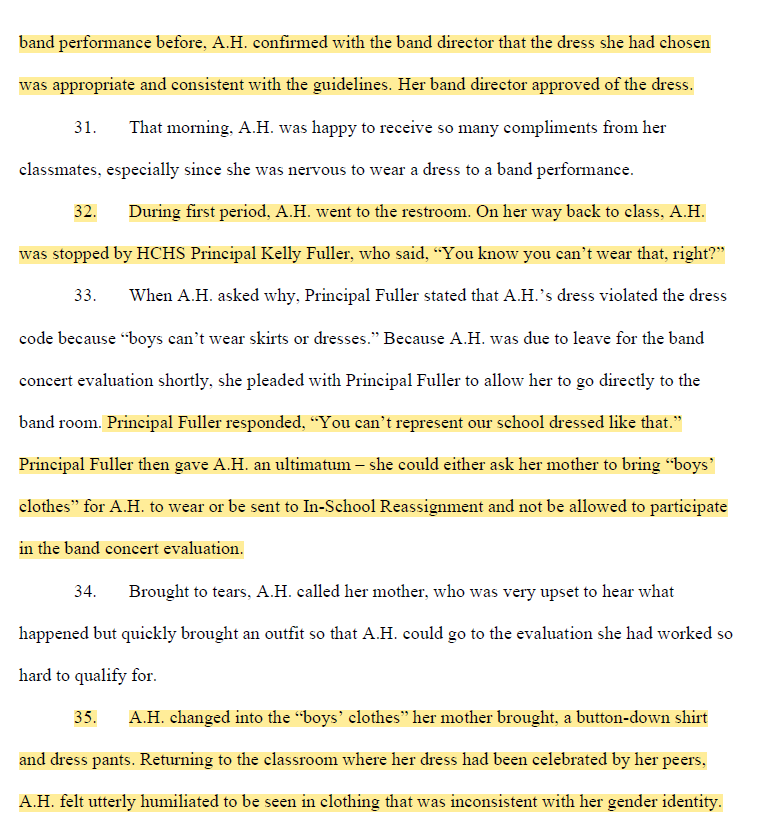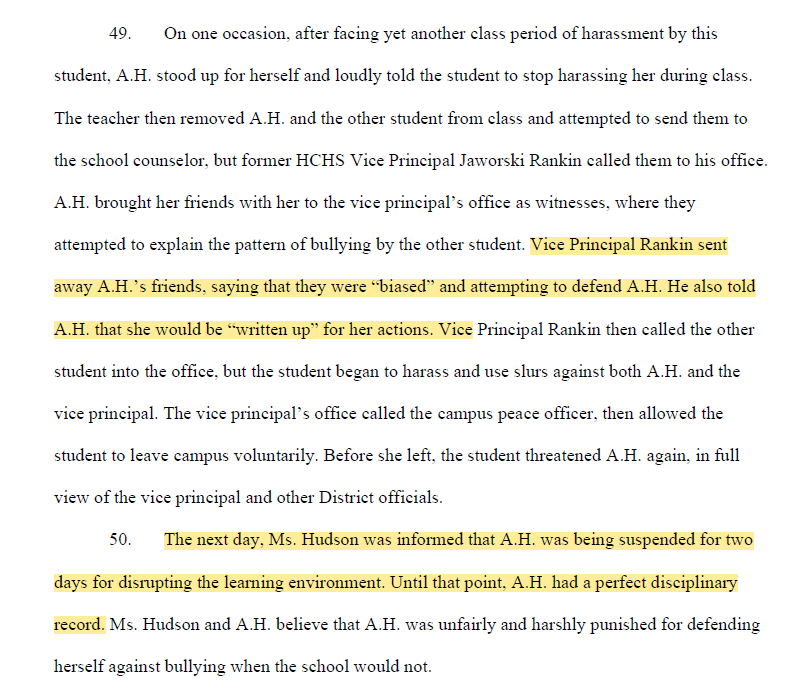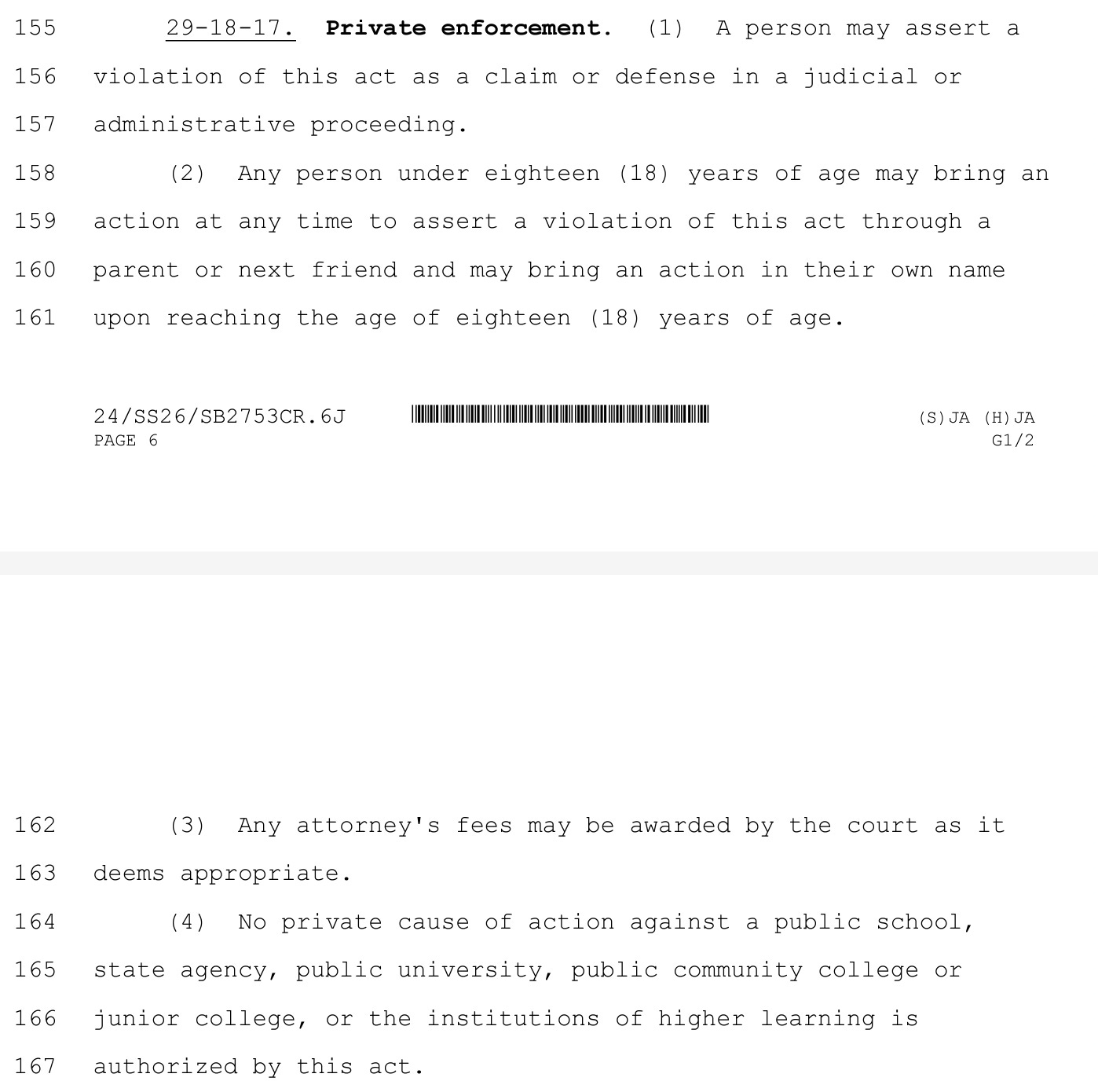Mississippi
Art spotlights people of color lost to AIDS in the South
The conference was attended by LGBTQ activists from the South, featured 100 quilt panels. Attendees participated in quilt-making workshops

JACKSON – The National AIDS Memorial has joined forces with the Southern AIDS Coalition to stage a series of art exhibitions and educational forums to honor Black and Brown people in the South who have been lost to HIV/AIDS.
The initiative, titled Change the Pattern, began in Jackson, Miss., on Wednesday with curated quilt exhibitions, displays, educational forums, advocacy, storytelling and quilt-making, according to a press release from the National AIDS Memorial. A $2.4 million grant from the biopharmaceutical company Gilead Sciences, Inc., funded Change the Pattern.
More than 500 hand-stitched quilt panels from the area were featured in what the National AIDS Memorial says is “the largest display of the AIDS Memorial Quilt ever” in Mississippi.
“By creating an empowering message and safe spaces for conversation, we can uplift, inspire and make progress toward ending the HIV epidemic, challenge cultural stigmas and continue the legacy of advocacy that the quilt represents,” said National AIDS Memorial CEO John Cunningham in the release.
Change the Pattern was announced in honor of Southern HIV/AIDS Awareness Day during the Southern AIDS Coalition’s annual Saving Ourselves Symposium that took place in August.
The conference, which was heavily attended by LGBTQ activists from the South, featured 100 quilt panels, and attendees participated in quilt-making workshops to make new quilt panels representing their loved ones.
Interested LGBTQ advocacy organizations in the South were invited to apply for funding to support local quilt-making workshops in their communities so as to ensure that the legacies of Black and Brown people are captured through newly-sewn panels on the quilt through the Memorial’s Call My Name program, according to the National AIDS Memorial press release.
The application process opened on Sept. 15 with up to 35 eligible organizations receiving as much as $5,000 to support hosting local workshops.
The first major Change the Pattern Quilt was founded 35 years ago as a visual representation of the need to end stigma and provide equitable resources to communities most impacted by HIV/AIDS, according to Southern AIDS Coalition Executive Director Dafina Ward.
“Change the Pattern is a call to action and change in the South,” said Ward. “Quilt-making has such a deep cultural connection in the Black community and in the South. The sharing and telling of these powerful stories through the quilt, coupled with advocacy and open dialogue, can help end HIV-related stigma and bring the stories of those we’ve lost to light.”
As the Change the Pattern initiative occurs, conversations about how to handle health epidemics within LGBTQ communities of color have become national topics, especially with the prevalence of monkeypox cases amongst Black gay men.
Despite earlier panic about the disease, the Centers for Diseases Control and Prevention in a report released on Wednesday said that individuals who were vaccinated against the disease were less likely to be affected over the summer compared to those who weren’t.
The effectiveness and duration of immunity after a single dose, however, is not known, and few individuals in the current outbreak have completed the recommended two-dose series, according to the report.
The most recent CDC data reports that 25,509 monkeypox cases have thus far been confirmed in the U.S. Only one death has been reported.
Mississippi
ACLU files complaint over Title IX violations in Mississippi school
Allegations include forcing these students to abide by a “biological sex” dress code, enduring repeated and severe harassment and bullying
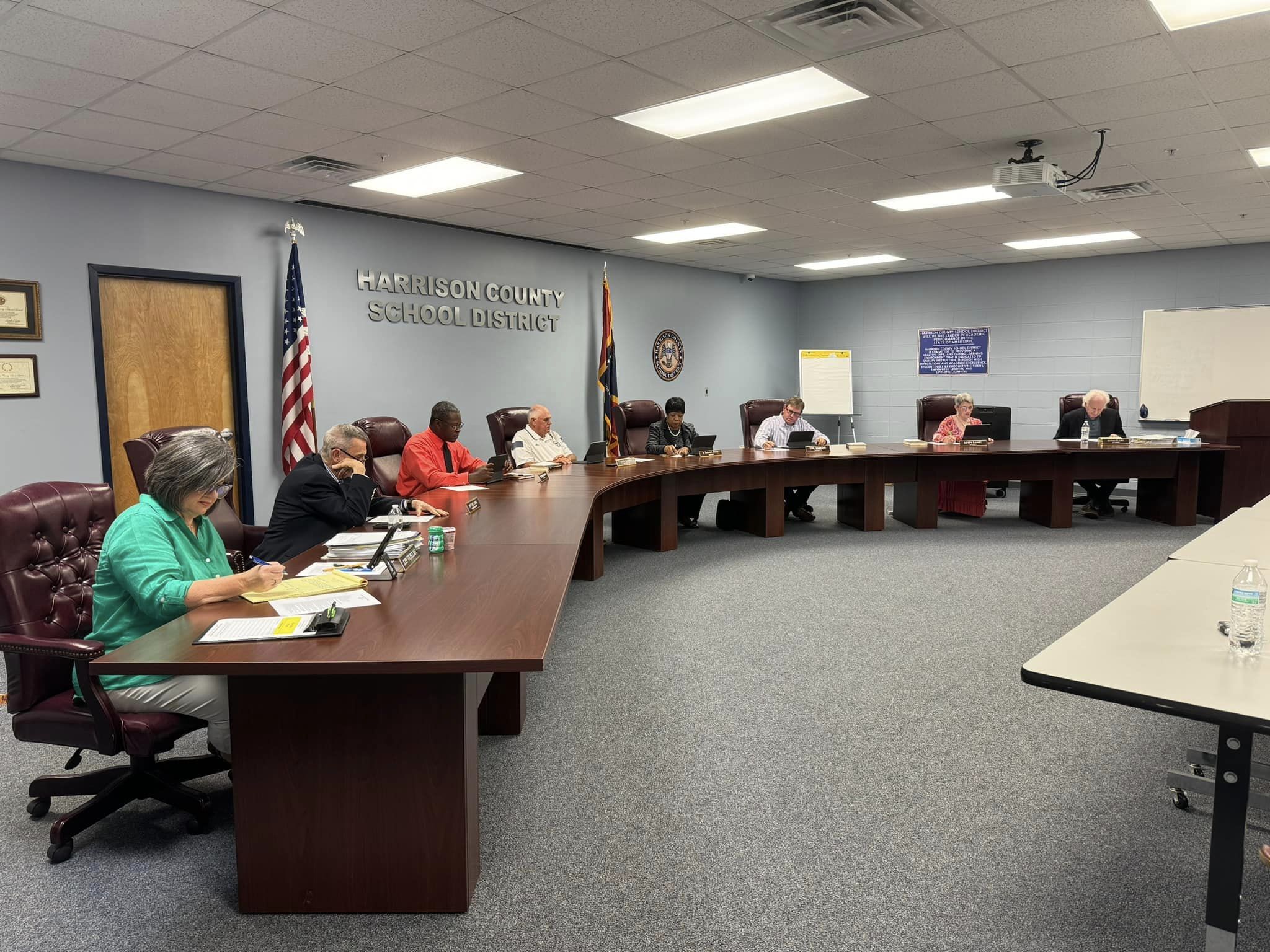
By Erin Reed | GULFPORT, Miss. – The ACLU has filed a Title IX complaint with the U.S. Department of Education’s Office for Civil Rights over the consistent, deliberate, and cruel mistreatment of transgender and gender-nonconforming students in the Harrison County, Mississippi School District.
Allegations include forcing these students to abide by a “biological sex” dress code, enduring repeated and severe harassment and bullying, and removing transgender and gender-nonconforming students from school-related functions in violation of Title IX. Previously, the school made national news for forcing a transgender girl, as well as a cisgender gender-nonconforming girl, to miss graduation for wearing a dress and pants, respectively.
The complaint was primarily brought by A.H., a transgender 16-year-old girl who attends Harrison Central High School. After being told by her band teacher that she could wear a black dress to a regional band concert evaluation, she received compliments from her fellow bandmates.
However, when HCHS Principal Kelly Fuller saw her in the hallway, she balked, saying, “You know you can’t wear that right? Boys can’t wear skirts or dresses,” and then added, “you can’t represent our school dressed like that.” She then forced her mother to bring “boys clothes” or threatened to send her to in-school reassignment.
The incident that appears to have triggered the complaint was not the only time A.H. has suffered harassment and abuse over her gender identity in the school district. Previously, when she entered the girls’ restroom in eighth grade, she was screamed at by a teacher to the point of tears. She was then forced to use the teacher’s restroom. In ninth grade, a hall monitor confronted her on her way to the bathroom, demeaned her, and asked, “What are you?”
She also alleges severe bullying and harassment from other students with no resolution from the school. She even received a suspension after being targeted by bullying in the classroom. One student allegedly repeatedly called her a “fa***t” and a “tr***y” in the presence of a teacher while class was in session. No action was taken until A.H. stood up for herself and told the student to stop harassing her loudly in the classroom. As a result, A.H. was written up and suspended for two days.
A.H.’s story is not unique in the district: the district has recently made national news after excluding a transgender girl, as well as a cisgender gender-nonconforming girl, from their own graduation due to their attire. The transgender girl, identified as L.B., was denied entry to her own graduation for wearing a dress and adhering to the girls’ dress code. Another cisgender student, identified as Jai, wore black pants to her graduation in accordance with her usual gender expression and was barred from attending. She was even told that she could remove her pants under her graduation gown, but if her pants were on under her gown, she would not be allowed to walk.
The following summer, the school released a “biological sex” dress code that mandates students “follow the dress attire consistent with their biological sex.” Boys are required to “wear shorts or pants, and shirts and footwear” and are banned from wearing items commonly associated with girls, such as skirts, dresses, and blouses. Girls must “wear dresses or skirts or shorts or pants, and shirts or blouses and footwear.” The policy appears to violate Title IX, as 34 CFR 106.31(b)(4) states that students cannot be subjected to different rules of behavior, sanctions, or treatment based on their sex. Numerous courts have ruled that sex-based dress codes violate Title IX, including the 4th U.S. Court of Appeals, which stated, “Based on the plain language and structure of the statute, we conclude that Title IX unambiguously encompasses sex-based dress codes.”
The ACLU is seeking five remedies for A.H. and students in the Harrison County School District.
- They seek an order for the district to adopt gender-neutral dress code policies.
- They demand that the school stop targeting, surveilling, and disciplining students based on sex.
- The school should adopt policies and procedures for promptly and equitably responding to reports of discrimination.
- The school should be made to provide mandatory training for District employees about non-discrimination and compliance with federal anti-discrimination lawss
- The school should issue a written apology to A.H. for discriminatory conduct.
The complaint will be a significant test of how the Biden administration handles a major Title IX complaint concerning gender identity and expression, following recent updates to Title IX guidance.
Additionally, the complaint emerges in the wake of the death of transgender teenager Nex Benedict in Oklahoma, where similar longstanding allegations of harassment and abuse led to an ongoing formal investigation into the school district.
More than 20 GOP-led states are suing the Biden administration over new Title IX rules, arguing that they have a right to discriminate against LGBTQ+ students despite Title IX protections. It remains uncertain whether these lawsuits will impact prohibited dress codes, which have been successfully challenged under Title IX even before the new rules.
******************************************************************************************

Erin Reed is a transgender woman (she/her pronouns) and researcher who tracks anti-LGBTQ+ legislation around the world and helps people become better advocates for their queer family, friends, colleagues, and community. Reed also is a social media consultant and public speaker.
******************************************************************************************
The preceding article was first published at Erin In The Morning and is republished with permission.
Mississippi
Mississippi passes trans bathroom ban & allows lawsuits over use
The ban targets trans people in colleges & contains a private right of action would allow cis-gender people to sue over trans bathroom usage
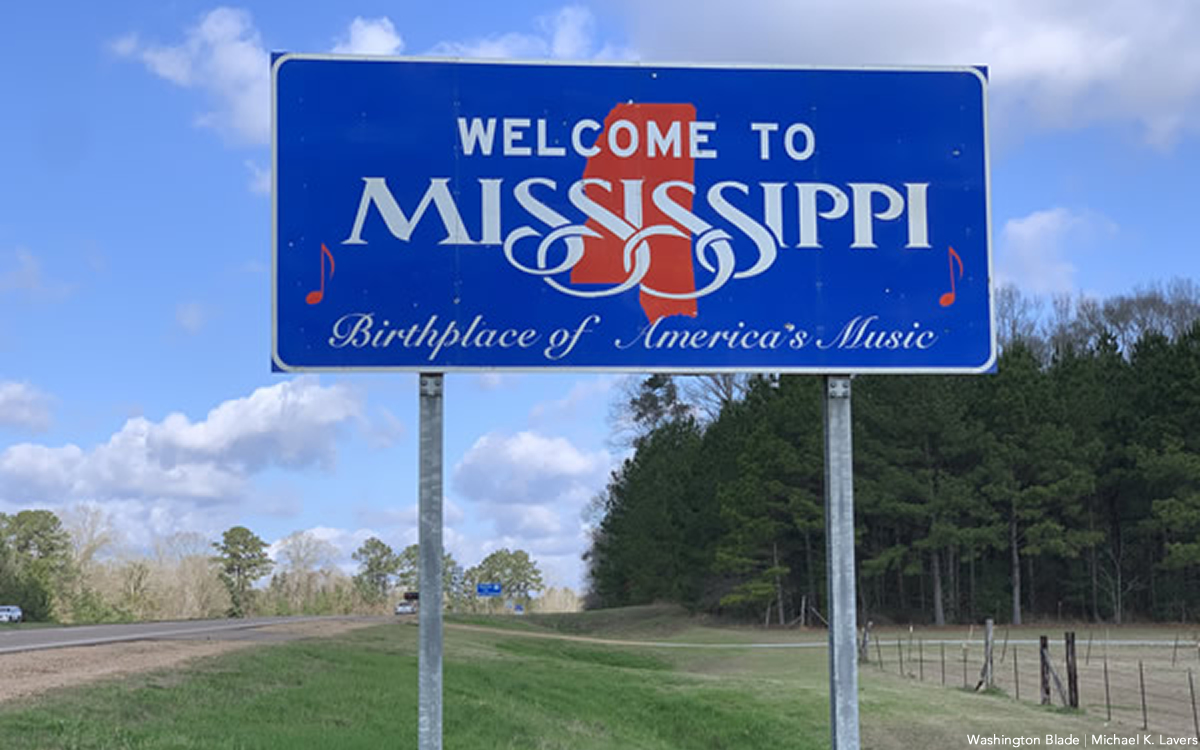
By Erin Reed | JACKSON, Miss. – Mississippi’s legislature passed a transgender bathroom ban that applies to all college campuses in the state. News of the bill’s passage came just after it appeared the bill had failed to meet deadlines, but Republicans voted to suspend the rules in order to pass it.
The bill bans transgender people from using bathrooms and changing rooms that match their gender identity on college campuses, and even allows cisgender people to sue transgender people who are found in bathrooms forbidden by the law. The bill now heads to the Governor’s desk, who is likely to sign it into law.
The bill is Senate Bill 2753, and it applies to all “public education buildings,” which include public schools and colleges, and any facilities owned or operated by them. It also applies to fraternities and sororities, which may have been included after a transgender girl won the right to stay in her sorority in Wyoming. It specifies that even dormitories must discriminate against transgender people in “single-sex educational housing spaces.”
Lastly, it offers a “private right of action” that appears to be targeted at transgender people, allowing cisgender people to sue to prevent transgender people from using bathrooms aligned with their gender identity, according to local news.
You can see the provision here:
This portion of the bill was a significant source of controversy during debate. Earlier versions of the bill explicitly allowed lawsuits for “compensatory damages,” although that provision was removed in the final conference committee for the bill. In its place is a scaled-down version of the private enforcement provisions, which leaves the question of enforcement uncertain when it comes to targeting transgender people individually. The bill also allows the state Attorney General of Mississippi to enforce the law against educational institutions.
Over the last year, more bathroom bans targeting transgender people have been enacted following Florida’s bathroom ban, which remains the harshest in the nation with criminal penalties of up to one year in jail. Kansas, North Dakota, and Utah also have bathroom bans. Utah’s ban targets all government buildings, including the airport, with enforcement depending on allegations of behavior that “causes affront or alarm.” In Kansas and North Dakota, there is no enforcement mechanism. Other states are also considering bathroom bans, such as Ohio, which has slowly progressed a bill similar to Mississippi’s higher education bathroom ban.
Mississippi has consistently been one of the harshest states toward transgender people. The state has already passed a gender-affirming care ban for transgender youth and a sports ban. Last year, students at one school in Mississippi were forced to wear clothing of their assigned sex at birth for graduation, resulting in both a transgender girl and a cisgender nonconforming girl being barred from walking at their own graduation after a judge sided with the school. This bill will only increase the danger for transgender residents and those who travel through the state.
Although the bill likely runs afoul of Title IX protections, Mississippi is among the states suing the federal government for the right to discriminate against trans people.
****************************************************************************

Erin Reed is a transgender woman (she/her pronouns) and researcher who tracks anti-LGBTQ+ legislation around the world and helps people become better advocates for their queer family, friends, colleagues, and community. Reed also is a social media consultant and public speaker.
******************************************************************************************
The preceding article was first published at Erin In The Morning and is republished with permission.
Mississippi
Mississippi lawmakers kill anti-trans legislation
The language of each measure would have had to be the same for the final versions to be passed and sent on to Republican Gov. Tate Reeves

JACKSON, Miss. – Republican lawmakers in Mississippi working to close out their 2024 legislative session were unable to vote on two measures that would have restricted the legal rights of transgender people in the state.
The Associated Press reported that House and Senate leaders failed to agree on compromise versions two bills, one bill that would have restricted transgender people’s use of bathrooms and locker rooms in public buildings, including university dormitories. The other would have specified that sex is defined at birth, and that “there are only two sexes, and every individual is either male or female.”
The language of each measure would have had to be the same for the final versions to be passed and sent on to Republican Gov. Tate Reeves. In February of 2023 Reeves signed into law HB1125, a bill banning health care treatments for gender dysphoria for transgender youth, prohibiting doctors from providing such care and stripping parents of the right to guide medical decisions for their own children.
Reeves said at the time he signed the bill, which bars puberty blockers, hormone therapy and surgery for minors, because “there is a dangerous movement spreading across America today.”
“It’s advancing under the guise of a false ideology, and pseudo science is being pushed onto our children through radical activist, social media and online influencers, and it’s trying to convince our children that they are in the wrong body,” Reeves said at a news conference after he signed the bill.
In 2021, the governor signed legislation to ban trans athletes from competing on girls’ or women’s sports teams.
Mississippi
HIV criminal laws lopsided impact on Black men in Mississippi
Mississippi’s 2021 Ending the HIV Epidemic Plan called for reform of the state’s HIV criminal laws to align with modern HIV medicine

LOS ANGELES – A new report by the Williams Institute at UCLA School of Law finds that at least 43 people in Mississippi were arrested for HIV-related crimes between 2004 and 2021. Half of all arrests in the state happened between 2017 and 2021.
The HIV epidemic and Mississippi’s HIV-related criminal laws disproportionately impact men, and Black men in particular. Men make up 49% of Mississippi’s population, 71% of people living with HIV (PLWH), and 72% of HIV-related arrests. Black men comprise 18% of the state’s population and 50% of PLWH. However, they make up 47% of HIV-related arrests.
Researchers analyzed data obtained from the Mississippi Department of Public Safety. Findings show that the enforcement of HIV criminal laws is concentrated around the state’s capital and most populous city, Jackson, and near the Gulf Coast. Almost 20% of arrests occurred in three counties: Harrison (15%), Hinds (13%), and Lamar (11%).
HIV criminalization is a term used to describe laws that either criminalize otherwise legal conduct or increase the penalties for illegal conduct based on a person’s HIV-positive status. Nearly two-thirds of U.S. states and territories currently have laws that criminalize people living with HIV.
Mississippi has two HIV criminal laws. The knowing exposure law makes it a felony to knowingly expose another person to HIV, hepatitis B, or hepatitis C and is punishable by up to 10 years in prison and/or a $10,000 fine. Mississippi’s endangerment by bodily substance law makes it a misdemeanor to attempt to expose or expose anyone at a correctional facility to bodily fluids. However, if someone knows their HIV or hepatitis status, the crime is upgraded to a felony punishable by 3 to 10 years in prison and/or a $10,000 fine.
“Mississippi’s criminal laws do not require the actual transmission of HIV, the intent to transmit, or even conduct that can lead to the transmission of HIV,” said lead study author Nathan Cisneros, HIV Criminalization Project Director at the Williams Institute. “We now have medical treatments that wholly eliminate the risk of transmitting HIV through sex, yet these advances are not reflected in Mississippi’s laws.”
Mississippi’s 2021 Ending the HIV Epidemic Plan called for reform of the state’s HIV criminal laws to align with modern HIV medicine.
“HIV criminal laws perpetuate stigma and can discourage testing and treatment,” said co-author Brad Sears, Founding Executive Director at the Williams Institute. “That’s why many national and state organizations, including the American Medical Association, have called for a repeal of these laws.”
This report is part of a series of reports examining the ongoing impact of state HIV criminalization laws on people living with HIV.
Read the report
Mississippi
Mississippi school district adopts dress code targeting trans kids
The district’s move also comes on the heels of several efforts to restrict the rights of transgender people in Mississippi

By Julia James | GULFPORT, MS. – The Harrison County School Board approved a change to its dress code policies last month that requires students to dress according to the gender they were assigned at birth, the Sun Herald first reported.
Multiple changes were made to the dress code in the middle and high school student handbook for the 2023-24 school year, including three new items related to the gender of the student. They state “boys must wear shorts or pants” and “girls must wear dresses or skirts or shorts or pants.” The third section says attire must be consistent with the gender in the school district’s permanent record, or a student’s birth certificate.
The same language is also included in the elementary student handbook for this year.
The superintendent of the district, Mitchell King, and other district representatives did not respond to requests for comment.
Earlier this year, the district made headlines for refusing to allow a transgender student to wear a dress to her graduation ceremony, resulting in a lawsuit by the ACLU. The complaint said the student wore “dresses, skirts, and other traditionally feminine clothing” throughout her high school career without issue. A judge declined to intervene in the case, and the student missed the graduation ceremony.
The district’s move also comes on the heels of several efforts to restrict the rights of transgender people in Mississippi. The Legislature passed a law in 2021 to ban trans women and girls from competing on teams that align with their gender and another this year to prohibit gender-affirming health care for trans minors.
In June, the University of Mississippi Medical Center dissolved its clinic that provided health care in an inclusive environment to LGBTQ+ individuals. The clinic had been under scrutiny by lawmakers for providing gender-affirming care to trans minors.
Rob Hill, Human Rights Campaign Mississippi state director, called on the school district to repeal this policy.
“Every kid should feel safe and welcome at school,” Hill said. “Transgender kids deserve the opportunity to grow up knowing that they are valued and respected for who they are. This harmful policy will only further alienate and endanger kids across Harrison County who are already struggling with so many challenges today. The school district should reconsider its decision and repeal this damaging and discriminatory approach.”
******************************************************************************************

Julia James, a Louisiana native, covers K-12 education. She previously served as an investigative intern with Mississippi Today helping cover the welfare scandal. She is a 2021 graduate of the University of Mississippi, where she studied journalism and public policy and was a member of the Sally McDonnell Barksdale Honors College. She has also been published in The New York Times and the Clarion-Ledger.
******************************************************************************************
The preceding article was originally published by Mississippi Today and is republished by with permission.
Founded in 2016 as the state’s first nonprofit, nonpartisan newsroom, Mississippi Today’s roots in Capitol coverage have grown to encompass a myriad of beats beyond politics and policy, including education, public health, justice, environment, equity, and, yes, sports.
We believe that an informed Mississippi is a better Mississippi. We center readers in everything we do, informing–and engaging–Mississippians through reporting, podcasts, events and online communities.
Related:
Mississippi
University band director mocks trans, women, & others on podcast
University declined to comment on its hiring of Steven Hugley who repeatedly misgendered trans people on his conservative commentary podcast

By Molly Minta | CLEVELAND, MS. – The new interim band director at Delta State University co-hosted a conservative commentary podcast in which he mocked people who choose to be childless, agreed pro-LGBTQ religious leaders should be stoned and misgendered notable transgender people.
In one instance on “Always Right,” the podcast that Steven Hugley co-hosted, he gagged at a photo of Jamie Lee Henry, the first openly trans active-duty military officer who was charged last year with providing confidential medical records to an FBI agent posing as Russian intelligence.
“I do take a little joy in the fact that it’s the first openly trans person, I’m not even gonna lie,” Hugley said to his co-host, Jeff Dotson, in a clip captioned “Man With No Loyalty to His Genitals Also Has No Loyalty to His Country.”
“And oh man, that picture, it’s haunting. Like, oh, I’m going to see that in my nightmares,” he said, and gagged again.
Hugley’s June 29 Facebook post celebrating his new role, made the day before it was announced internally, caught the eye of Jonathan Szot, a library assistant at Delta State who has helped organize on-campus Pride events. Szot, whose pronouns are they/ them, had known Hugley ever since they were in a music fraternity in undergrad at Delta State.
That day, Szot helped put together a Google Drive of recordings of Hugley’s podcast, which they reported to the university’s diversity, equity and inclusion coordinator.
“Imagine you’re an 18-year-old band kid, probably one of the queerer groups in Mississippi — not to stereotype the whole group but a lot of band kids end up somewhere in that alphabet — and now you’re going to college and you’re like ‘I’m gonna be free for once’ and you wind up with this,” Szot said.
Now, they’re calling on the university to rescind Hugley’s hiring. Hugley and Dotson have not uploaded a new episode since March, but Szot said they are concerned Hugley’s beliefs could show up in the classroom.
“If Steven wants to govern his own life by those rules, fine by me. It doesn’t affect me; it doesn’t bother me,” Szot said. “But he should not tell our students how they should behave, and based on his own podcast, I do not feel confident in his ability to separate his role as an educator in a university and as an evangelist.”
What’s at stake for Szot goes beyond Hugley’s comments; they say the university’s action or inaction is a litmus test. With support from the prior administration, the LGBTQ community has grown at Delta State despite backlash from some locals in Cleveland, the small town in the Mississippi Delta that plays host to the university. Will the new president, Daniel Ennis, make inclusivity a priority too ?
“If they don’t address his views — his outspoken, public views — in some way, then yeah, it definitely will feel like a step back,” Szot said.
Delta State declined to comment for this story or to say what steps, if any, the administration plans to take to ensure future band students feel safe training under Hugley. The university also did not confirm if Dotson, who used to work in the registrar’s office, is still employed at Delta State.
‘If you don’t like it, go somewhere else’: New band director at Delta State mocked trans people, women and other groups on podcast
Experts who study civil liberties in higher education told Mississippi Today that even though Hugley hosted his podcast as a private citizen, the university could still condemn his speech.
Hugley told a Mississippi Today reporter on Tuesday that he could not talk for long because he was arriving at a recruitment event for the band. He added that he had not heard anything from the university. Shortly after, he locked his Twitter account. All the videos on the podcast’s YouTube channel, which has five subscribers, were deleted.
The next day, Hugley declined to comment or provide additional context for his statements on the show. His co-host, Dotson, did not return a request for comment, but in the first episode, he articulated the premise of the show: “We felt that our opinions were just too important to keep them to ourselves — that, and our wives got tired of listening to us.”
The controversy is a test for Ennis, the university’s new president and an outsider to the Delta who took his post earlier this summer after a split vote from the Institutions of Higher Learning Board of Trustees. It remains to be seen how he will respond to Szot’s report.
“We’re still reading the tea leaves in his every gesture and mannerism,” Szot said. “A lot of the staff feels fairly optimistic about him. He seems like one of us. We’re all giant nerds.”
It’s unclear when university officials first learned about Hugley’s podcast. Last week, the provost, Andy Novobilski, emailed Szot’s superior to confirm “that the ‘steve’ on the Steve And Jeff podcast is actually Steve Hugley,” according to a copy of the email.
The interim chair of the music department, Kent Wessinger, couldn’t say if he knew about the podcast before interviewing Hugley for the interim band director position earlier this year.
“There was so much going on in that moment, I don’t really recall,” Wessinger said.
Wessinger added that Hugley, who graduated from Delta State in 2012, is a dedicated alumnus who is deeply involved in the community. Hugley is a minister at the Bolivar Church of Christ. His Twitter username is a reference to the university’s okra mascot. He’s on the alumni board of directors.
And in his Facebook post, Hugley wrote that it had been his 12-year dream to become the band director — a passion that has gained him sympathy with Wessinger.
“I happen to believe that he can rise above and he can do something significant, not for himself, and not just for the university, but for every student that comes here that wants to major in music and be in the band,” Wessinger said. “And so I’m not going to be the person that judges him for the positions that he takes, because everybody has positions that are adverse to other people.”
This is more than a dream for Szot. They want to live in a safe community, but instead, they’re used to backlash. And in a small town where Szot knows everyone, politics are inherently personal.

In fall 2019, a university marquee advertising a drag show as “family friendly” was shared in a Facebook group. Outraged community members left comments suggesting they would protest the show, which was going to be held on the library steps. As a precautionary measure, Okra OUT, the on-campus organization that hosted the show, relocated inside the Jobe Auditorium.
Szot and other Okra OUT members were heartened to see Bill LaForge, the university’s former president, and other upper-level administrators attend. But that doesn’t change the wider context in Mississippi, they said, where the state government is hostile to LGBTQ+ rights.
“It’s the whole paradox of tolerance,” they said. “To have a tolerant society, you cannot tolerate the intolerant. That is simply how that works.”
A Facebook post about the fall 2019 Okra OUT event prompted outcry from some conservative community members in Cleveland.
“The First Amendment doesn’t stop the university from putting out its own statement criticizing what the band director said,” said Aaron Terr, the director of public advocacy at the Foundation for Individual Rights and Expression. “The university can use its bully pulpit in that way, if it chooses to.”
There’s precedent for this, Terr noted, most notably in 2019, when the University of Mississippi condemned social media posts by sociology professor James Thomas. While nationally, conservative professors often find themselves at odds with university administration for controversial speech, Terr said in Mississippi, the reverse tends to be true.
Kristen Shahverdian, a program coordinator with PEN America, a nonprofit that promotes free expression, said Delta State could also hire a second band instructor so that students who don’t want to interact with Hugley could still participate in band.
“I would say what the university should do is not ignore this and address the community by reaching out to the communities most impacted by the speech first,” she said.
The 24 episodes of “Always Right” cover a range of newsy and at-time philosophical topics, including the police shooting of Tyre Nichols; the train derailment in East Palestine, Ohio; Christmas (the only holiday Dotson likes); a TikTok made by the comedian Chelsea Handler about being a childless woman and even the nature of civic disagreement.
Toward the end of episode 22, Hugley called Dylan Mulvaney, a trans female actress who received online abuse after she partnered with Bud Light on TikTok, a “flaccid man at best.” He added that since Mulvaney documented her transition online, she doesn’t “get to cry when people make comments and mean things about you.”
Then he addressed Dotson.
“When you and I decided to start this podcast — we don’t care if we have one viewer, we don’t care if we have a million viewers — we knew we were putting ourselves out there and that ridicule comes with it,” he says. “That’s part of the game, you know? If you don’t like it, go somewhere else. You don’t get to be a public figure and then cry about people who disagree with you. It doesn’t work that way.”
In the most recent episode, Hugley refers to Dr. Rachel Levine, the United States assistant secretary for health and the first openly trans federal official, as “a dude.” He said transitioning — the process of changing one’s physical appearance to align with gender identity — should be illegal not just for trans kids, but for trans adults too.
“If you do, not only are we gonna lock you up, we’re also gonna lock up the doctor,” Hugley said in reference to parents who seek gender-affirming care for trans kids, “and then we take it the next step.”
Hugley doesn’t “hate” trans people either, he said in one episode. It is not “mean and evil” to misgender them, he said in another.
“I’m concerned about these people,” he said. “I know that lying to them and feeding into their fantasy is not going to help them.”
On the show, Hugley and Dotson watch multiple viral videos of religious leaders who support or are members of the LGBTQ+ community. In episode 21, they play a viral TikTok from an associate pastor in the United Methodist Church who preaches in drag, which prompts Dotson to say “every man in that building should have been talking over him and should have been pelting him with song books.”
“We are so soft, we are so weak, we are so tolerant,” Dotson added.
Another TikTok they watch, in a clip titled “Christians Need to Play Offense,” shows a progressive reverend wearing a rainbow stole and delivering a sermon that begins “God is gay, God is lesbian, God is trans.”
“These people should be afraid to say these kinds of things in public,” Dotson said after referencing Biblical scripture. “Except, then we go back to the thing where there’s not really free speech in public, because we’re afraid to speak our mind, because we’re afraid to get fired.
“They should be afraid to be stoned spouting this kind of nonsense,” Dotson said.
Hugley nodded.
“When all the institutions of power are on your side, we’re not punching down,” Hugley said. “The administration? They’re on your side. The media? They’re on your side. Hollywood and all entertainment? They’re on your side.”
Dotson concludes that if he lives to see his “dream” of communism becoming illegal in the U.S., he wouldn’t care about the institutions.
“Oh, Jeff, that sounds like McCarthyism,” Hugley jokes, referencing the period in the 20th century when U.S. Sen. Joseph McCarthy accused hundreds of government employees of being communist spies.
Dotson replies, deadpan: “McCarthyism was good. It didn’t go far enough.”
“McCarthyism was highly underrated,” Hugley agrees.
******************************************************************************************

Molly Minta covers higher education for Mississippi Today. She works in partnership with Open Campus, a nonprofit news organization focused on investigating higher education. Originally from Melbourne Beach, Florida, Molly reported on public housing and prosecutors in her home state and worked as a fact-checker at The Nation before joining Mississippi Today. Her story on Mississippi’s only class on critical race theory was a finalist for the Education Writers Association National Awards for Education Reporting in 2023 in the feature reporting category.
******************************************************************************************
The preceding article was originally published by Mississippi Today and is republished by with permission.
Founded in 2016 as the state’s first nonprofit, nonpartisan newsroom, Mississippi Today’s roots in Capitol coverage have grown to encompass a myriad of beats beyond politics and policy, including education, public health, justice, environment, equity, and, yes, sports.
We believe that an informed Mississippi is a better Mississippi. We center readers in everything we do, informing–and engaging–Mississippians through reporting, podcasts, events and online communities.
Mississippi
Ready to make history as Mississippi’s first Black LGBTQ lawmaker
“You don’t have to be the loudest one in the room to make an impact so long as you are standing your ground when it comes to bad legislation”

WASHINGTON – During the LGBTQ Victory Fund’s National Champagne Brunch Sunday morning in Washington, D.C., the Washington Blade spoke with Fabian Nelson, a Black and openly gay Democratic candidate who would become the first out LGBTQ lawmaker ever to serve in the Mississippi legislature if elected.
Nelson will square off against two opponents from his party in the August 8 primary. If successful, he would face a general election on November 7, an easier gambit provided the seat to represent Mississippi’s 66th House District is solidly Democratic, he said.
Notwithstanding his electoral prospects, Nelson acknowledged the challenges with racism and homophobia that he has continued to contend with as a candidate, along with the hostile political environment in which he would serve if elected. Still, he is optimistic about the trajectory of his campaign and for the potential to move Mississippi in a better direction.
“I come from a family of a lot of ‘firsts,’” Nelson said. His grandfather opened a bank in the early 1900s for Black residents of his hometown, while his grandmother was the first Black nurse to integrate the hospital in Yazoo City and his father was the first Black graduate of Virginia Commonwealth University’s dental school.
“They keep raising the bar, so I have to raise it a little bit higher,” he said.
Mississippi has a Republican trifecta as well as a Republican triplex, which means the party exerts tremendous political power with control over both chambers of the state’s legislature and the governorship, along with the offices of the secretary of state and attorney general.
If elected, Nelson would represent residents of Mississippi’s majority-Black state capital, Jackson – which has long suffered with issues like high poverty rates and rising crime, including gun violence.
Years of poor governance have exacerbated these problems, while the state’s conservative legislators have used the city’s condition as a pretext to strip residents of the right to choose their elected leaders.
Nelson has an expensive range of policy areas that he said will be major priorities should he win the House seat, from expanding Mississippi’s Medicaid program to fighting back against the conservatives’ disenfranchisement of his constituents in Jackson and their harmful anti-LGBTQ legislative proposals.
Anti-LGBTQ legislative bigotry coupled with homophobic personal attacks
During Mississippi’s first legislative session of 2023, lawmakers considered 31 anti-LGBTQ bills, more than were introduced anywhere else in the country.
Nelson, who was involved in advocacy against these legislative proposals as a member of the Human Rights Campaign, noted the importance of mobilizing the public’s opposition to anti-equality bills in helping to defeat 30 of those 31 proposals that failed to pass in the last session.
Unfortunately, Nelson said, the lone bill that survived was perhaps the most harmful of those under consideration in the chamber – a measure barring access to guideline directed gender affirming health care interventions for youth in Mississippi with gender dysphoria, which the governor signed into law in late February.
It was a major blow, Nelson acknowledged. At the same time, he said, pushing back more effectively against Republican messaging on the healthcare ban, such as by framing its proponents as politicians who are trying to “play doctor,” may have yielded a different outcome.
Nelson is not just encountering anti-LGBTQ bigotry in the legislative context, but also that which has been directed at him personally as a gay candidate for public office in a deep-red state in the deep south. Especially in Mississippi and among older folks in the state, homophobia can come from voters and elected officials even from his own party, Nelson said.
“I think [my] being LGBTQ may pose a problem with some of the Democratic lawmakers” in the chamber, he said.
Nelson told the Blade one of his supporters, an 80-year-old Jackson resident whom he affectionately calls “Miss Emma,” was approached by a Democratic opponent who asked her, “How do you feel about him [Nelson] being gay with his [LGBTQ] agenda?”
“All these years, I’ve voted for straight people,” Nelson said she told him. “None of them came and picked my garbage up or cleaned my flowerbed out.”
Following the city government’s shutdown of trash hauling services earlier this month, Nelson said he had personally been picking up and disposing of garbage for Miss Emma along with Jackson’s other elderly or disabled residents.
Nelson said effectuating real change is possible when pro-equality candidates run for office, fight for their constituents, establish relationships with colleagues on both sides of the aisle, and communicate effectively with the public about what is (and is not) happening in the Capitol building to encourage more active civic engagement and strengthen political organizing efforts.
Entrenched issues of racial justice
Nelson’s campaign comes amid the scandal over the GOP-led Tennessee House of Representatives’ expulsion of two Black Democratic lawmakers from the chamber, which was widely denounced as racially motivated.
Meanwhile, over the Mississippi border into Alabama, the state’s Republican Gov. Kay Ivey last week ousted the Black director of early childhood education, Barbara Cooper, for including teaching on concepts like inclusion and structural racism.
Asked how he expects to contend with racism in the chamber if elected, Nelson said conflict can be minimized and discussions made more productive in many cases by practicing active listening so those with different views feel heard.
“You don’t have to be the loudest one in the room to make an impact” he said, so long as you are “standing your ground when it comes to bad legislation and, you know, standing my ground and fighting for what I believe in, not backing down.”
Engaging members of the public and bringing them into the fold is another crucial tool, Nelson said. He pointed to the public outcry in Tennessee and across the country that led voters to return state Reps. Justin Pearson and Justin Jones to their democratically elected seats in the legislature.
Residents in Jackson were not only deprived by their government of garbage collection services, but also suffered the near collapse of the city’s water system, prompting the U.S. Department of Justice to step in with a lawsuit last year on behalf of the Environmental Protection Agency’s Office of Civil Rights.
Meanwhile, rising crime in Jackson and calls for an increased police presence created the pretext for Mississippi’s Republican lawmakers to pass H.B. 1020, legislation that will allow conservative state officials to appoint, rather than allowing constituents to elect, judges and prosecutors in the city’s sprawling Capitol Complex Improvement District.
They will serve alongside a Capitol Police force whose jurisdiction was expanded despite the Department’s officers’ having shot four citizens since last August with little explanation or accountability.
News that the Governor signed H.B. 1020 into law last week had instigated protests, by which point Nelson said it was already too late. He said the time to rally opposition among voters, which would have first required effectively reaching them with information about how the law would strip them of political power and autonomy to pick their elected officials, was immediately after Republican lawmakers had introduced it.
“If you have the citizens, the people, in your corner,” he said, “you cannot lose when you start exposing this bad stuff that’s happening.”
“And one more thing,” Nelson said, pointing to a pin on the lapel of his jacket, “this is our new state flag.”
Four years ago, amid considerable pressure from the public, the GOP controlled legislature made the extraordinary decision to replace Mississippi’s state flag that had flown since 1894, which depicted the Confederate battle flag in its upper left canton.
The new banner features a white magnolia blossom befitting of the state’s official nickname.
Mississippi
Mississippi bans gender-affirming health care for Trans youth
Mississippi is the fifth state in the country and the third state in the past month to ban gender-affirming care for transgender youth
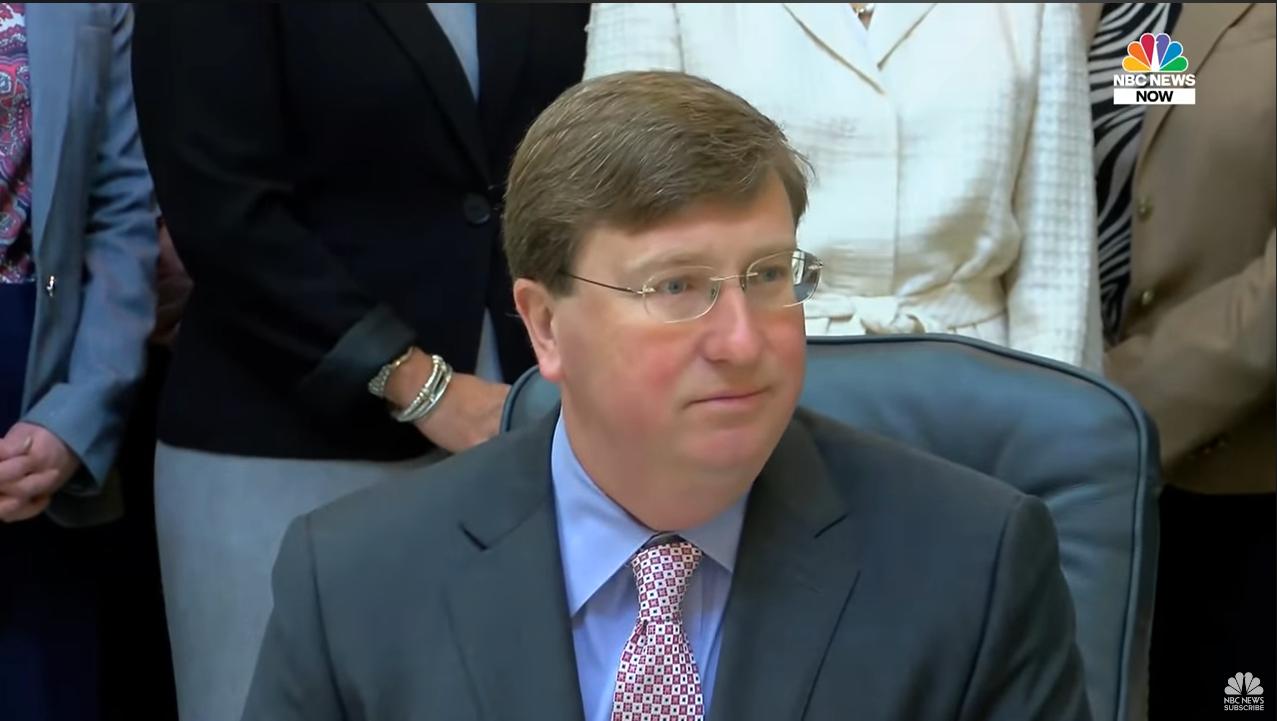
JACKSON — Mississippi Republican Gov. Tate Reeves signed into law today HB1125, a bill banning health care treatments for gender dysphoria for transgender youth, prohibiting doctors from providing such care and stripping parents of the right to guide medical decisions for their own children.
The American Civil Liberties Union and the ACLU of Mississippi issued the following statement:
“This is a devastating development for transgender youth in Mississippi and heartbreaking for all of us who love and support them. This care was already difficult to access across the state for transgender people of any age, but this law shuts the door on best-practice medical care and puts politics between parents, their children, and their doctors. But this fight is far from over — we are determined to build a future where Mississippi is a safe place to raise every child. Our politicians continue to fail trans youth, so it is up to each and every one of us to rise against their fear and ignorance and surround these young people with strength, safety, and love.”
Mississippi is the fifth state in the country and the third state in the past month to ban gender-affirming care for transgender youth after Utah and South Dakota passed similar bans. Similar laws in Alabama and Arkansas are currently enjoined by federal courts.
“Barely two months into the year, lawmakers in three states have made it their priority to deny transgender and nonbinary youth the ability to access best-practice medical care that many rely on to simply lead happy, healthy lives,” said Kasey Suffredini (he/him pronouns), Vice President of Advocacy and Government Affairs at The Trevor Project. “Decisions around medical care should be made between parents, patients, and doctors — not by politicians. While this news is heartbreaking, we want to remind trans and nonbinary young people in Mississippi that The Trevor Project has your back. We will continue working with our partners and advocates on the ground to challenge these laws and fight for a world where all young people feel safe, supported and seen for who they truly are.”
According to The Trevor Project’s new polling, 86% of transgender and nonbinary youth say recent debates about state laws restricting the rights of transgender people have negatively impacted their mental health. When asked about new policies that will ban doctors from providing gender-affirming medical care to transgender and nonbinary youth, 74% of transgender and nonbinary youth said it made them feel angry, 59% felt stressed, 56% felt sad, 48% felt hopeless, 47% felt scared, 46% felt helpless, and 45% felt nervous.
Reeves said he signed the bill, which bars puberty blockers, hormone therapy and surgery for minors, because “there is a dangerous movement spreading across America today.”
“It’s advancing under the guise of a false ideology, and pseudo science is being pushed onto our children through radical activist, social media and online influencers, and it’s trying to convince our children that they are in the wrong body,” Reeves said at a news conference after he signed the bill.
NBC News reported that after he signed the bill, Reeves invited Matt Walsh, a commentator for the right-wing news outlet Daily Wire, to speak. Walsh has increasingly criticized hospitals, particularly Vanderbilt University Medical Center, for their treatment of transgender youth.
Matt Walsh is a self-described “theocratic fascist.” Of course Reeves welcomed him. https://t.co/Rrkck15ehr
— Michael Foley (@michaelnfoley) February 28, 2023
Mississippi
Police: Murder ‘isolated’ incident- no ongoing threat to LGBTQ community
Police arrested Sheldon Timothy Herrington Jr., a 22-year-old Ole Miss graduate, for Lee’s murder, & he is currently being held without bond
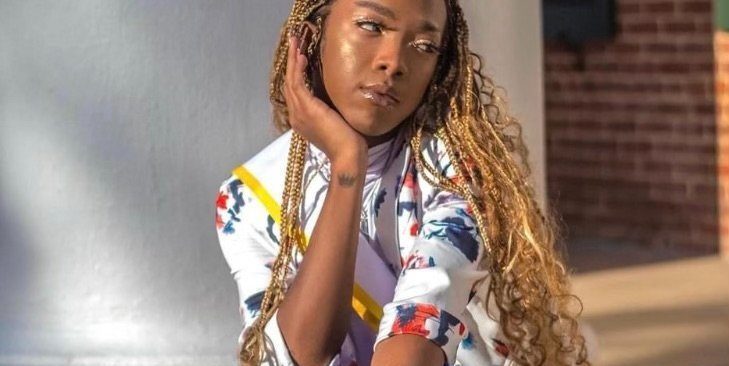

By Molly Minta | OXFORD – The Oxford Mississippi Police Department released a statement Friday afternoon that the killing of Jimmie “Jay” Lee, a Black student who was well-known in the town’s LGBTQ community, is an “isolated incident” that does not reflect a broader threat to queer people in Mississippi.
The statement comes three days after a Lafayette County judge determined there was probable cause for police to arrest Sheldon Timothy Herrington Jr., a 22-year-old Ole Miss graduate, for Lee’s murder, and that he should be held without bond.
“Based on the information collected to date, our investigators believe this crime represents an isolated incident stemming from the relationship between Jay Lee and Tim Herrington,” the release states.
Members of the LGBTQ community in Oxford have been asking police to release more information about the nature of the case ever since Herrington was arrested three weeks ago. Many members said more transparency from police would help them make decisions about how to stay safe.
Police nodded to this perspective in the release: “More broadly, we want to stress that our agencies are committed to doing all that we can to maintain a safe environment for everyone in our community.”
Members of the LBGTQ community are more likely to be the victim of physical harm from domestic and intimate partners. This is especially true for Black queer people who face compounded discrimination due to homophobia and racism — a routine threat of violence that is personal and systemic, with roots much deeper than any one case.
The release also follows a story Mississippi Today published earlier this week based on accounts from 11 LGBTQ students, faculty and University of Mississippi alumni who said they no longer felt safe in Oxford. At least one community member is afraid to leave their house, said Jaime Harker, the director of the Sarah Isom Center for Women and Gender Studies at UM and the owner of Violet Valley, a feminist bookstore near Oxford.
Harker said she felt that OPD’s silence contributed to harrowing rumors in the community about the nature and reason for Lee’s killing.
“I think people are filling the void with what their biggest fears are,” she said.
Lee, 20, was a well-known member of Oxford’s LBGTQ community who regularly performed at Code Pink, a local drag night. An open, confident person, Lee ran for homecoming king last year to promote a platform of “self love and living your truth.” He repeatedly spoke out about the harassment received for wearing women’s clothing.
For many people in the community, Lee’s outspokenness made his disappearance all the more terrifying.
Lindsey Trinh, a senior journalism student at Ole Miss, told Mississippi Today that after weeks of receiving no information about Lee’s killing, she decided she was too fearful and anxious to return to classes in person. She wrote an email to the university provost and her professors explaining how Lee’s case had affected her.
“At the time and because of the unknown of why this has happened to Jay and the whereabouts of his body, I have decided that I cannot physically come back to Oxford for my last semester this Fall,” Trinh wrote in her email. “I fear for my safety and well-being as an outspoken and proud gay person of color.”
Authorities believe that Lee’s body, still missing, is somewhere in Lafayette or Grenada County. But the circumstantial evidence that police have so far gathered was enough to bring charges, Lafayette County Assistant District Attorney Tiffany Kilpatrick argued in court on Tuesday.
“In 2022 you do not need a body,” Kilpatrick said. “It’s not the 1870s.”
During the preliminary hearing, Kilpatrick alleged that Herrington’s casual relationship with Lee was unknown to his friends and family. She said that early in the morning on July 8, Herrington “lured” Lee to his apartment, strangled him, and then “staged a cover up” by driving Lee’s car to Molly Barr Trails, a student housing complex.
Herrington then picked up a box truck belonging to his moving company, Kilpatrick said, and drove it to his parent’s house in Grenada where he retrieved a long-handle shovel and wheelbarrow.
Kilpatrick argued that Herrington should have been denied bond because his charge – first-degree murder – will likely be elevated to capital murder as police uncover more evidence; some of which is still being processed at a private crime lab. Kilpatrick also argued Herrington was a flight risk, noting that a forensic search of his MacBook showed he had searched for flights from Dallas to Singapore.
Herrington’s defense attorney, state Rep. Kevin Horan, disputed that Herrington, who has $1,910 in his bank account, could afford to flee the state. In his closing statement, Horan said the prosecution’s case amounted to “suspicion, conjecture and speculation.”
Horan called four witnesses who testified, in an effort to obtain bond for Herrington, to his character and connections to the community in Grenada. The witnesses included Herrington’s mother, an elder at his church, one of his teachers, and ??Emily Tindell, the principal of Grenada High School.
Tindell said that Herrington and his family have “the best of character in Grenada County.”
In her closing statement, Kilpatrick said that Herrington was not the same person that his teachers and family described.
“They don’t know this other Tim Herrington, his double life,” she said. “They don’t know the Tim Herrington who lives in anonymity. This Tim Herrington, your honor, is the Tim Herrington who killed Jay Lee.”
***********************

Molly Minta, a Florida native, covers higher education for Mississippi Today. She works in partnership with Open Campus, a nonprofit news organization focused on higher education. Prior to joining Mississippi Today, Molly worked for The Nation, The Appeal, and Mother Jones.
***********************
The preceding article was previously published by Mississippi Today and is republished with permission.
***********************
Mississippi Today is building a better Mississippi by providing news and resources centered on the lived experiences of the people who live and work here. By donating, you’re joining the thousands of members who voluntarily pay to provide all Mississippians with free and accessible nonprofit journalism that holds public officials accountable and puts a human face on the issues.
MississippiToday.org is supported by grants from foundations, by contributions from donors and sponsors and by advertising. All donations are tax deductible. A complete list of the Mississippi Today donors and sponsors can be viewed here.
Support Us:
Your contribution is appreciated. Donate Now
Mississippi
Pizza Hut’s Book It! program attacked by Hate group over kids drag book
Big Wig by Jonathan Hillman is about a magic wig and a child who dresses in drag to compete in a neighborhood costume competition

TUPELO, Ms. – In a city known as the birthplace of Elvis Presley, it is also headquarters to a leading national anti-LGBTQ+ group, The American Family Association, (AFA) listed by the Southern Poverty Law Center as a ‘Hate’ group for its lies and propaganda about LGBTQ+ rights and expression, pornography, and abortion.
One ‘division’ of the AFA is the notorious One Million Moms headed by AFA’s Monica Cole who this past week sent out a newsletter attacking the Pizza Hut BOOK IT! Program, that encourages reading for grades PreK-6 young people, which for LGBTQ+ Pride Month this year featured a book titled Big Wig.
Big Wig by Jonathan Hillman is about a magic wig and a child who dresses in drag to compete in a neighborhood costume competition.
Cole, echoing earlier attacks by some right-wing conservatives on Twitter earlier this month as reported by Newsweek, wrote in her newsletter:
Pizza, Hut, the once kid-friendly family restaurant, is saturated in absolute filth, exploiting America’s children to be “groomed” by wokeness. Pizza Hut is now promoting a book about drag kids for its “Book It!” reading incentive program to indoctrinate children into transgenderism and homosexuality.
It has been added this month for Gay Pride Month. The book is geared towards children in pre-kindergarten up to third grade. Obviously, the goal is to normalize the LGBTQ lifestyle and indoctrinate young children.
The “Book It!” website features the book Big Wig, which is described as a “wonderful, read-aloud book that “celebrates the universal childhood experience of dressing up and the confidence that comes with putting on a costume.”
The description of Big Wig states, “In the spirit of Julián Is a Mermaid, this irrepressible picture book celebrates drag kids, individuality, and self-confidence from the perspective of a fabulous wig!”
The goal is to “groom” the next generation. It is disgusting what is being done in our culture against children. Evidently, Pizza Hut and other woke companies are seeing how much conservatives will, or in this case, will not put up with regarding their LGBTQ agenda.
It is outrageous that a family restaurant is marketing and normalizing gender dysphoria to young children. If you eat at Pizza Hut, you are also supporting child exploitation, which this corporation apparently contributes to and endorses.
The corporation of YUM! Brands owns Pizza Hut, as well as KFC, Taco Bell, and The Habit Burger Grill. 1MM, let us urge Pizza Hut to no longer promote Drag Queen storybooks such as Big Wig in their “Book It!” incentive reading programs.
There are plenty of other reading programs for children to participate in that do not encourage kids to read books about other kids’ sexuality. Families also have numerous other pizza restaurants available to choose from besides Pizza Hut.
TAKE ACTION: Sign our petition urging Pizza Hut to no longer promote Drag Queen storybooks such as Big Wig in their “Book It!” incentive reading programs.
The right-wing anti-LGBTQ+ outrage over the Pride-themed book for kids is the latest in a series of assaults by conservatives on the ability to inform and sensitise young persons about the LGBTQ+ community.
In March of this year Florida Republican Governor Ron DeSantis signed that state’s ‘Don’t Say Gay bill’, into law which dictates that public school teachers may not instruct on sexual orientation or gender identity in grades kindergarten through third grade.
“Pizza Hut has gone full woke, now we must make them full broke,” said Brigitte Gabriel, founder of anti-Muslim advocacy group Act for America.
Pizza Hut has gone full woke, now we must make them full broke.
— Brigitte Gabriel (@ACTBrigitte) June 3, 2022
Conservative political commentator and author Nick Adams tweeted, “Boycott Pizza Hut, order from Papa John’s instead. Better ingredients. Better pizza. No wokeness.”
Papa John’s has and always will be better than Pizza Hut.
— Nick Adams (@NickAdamsinUSA) June 3, 2022
Pizza Hut has gone woke, now they must go broke.
Since 1984, the Pizza Hut BOOK IT! Program has been dedicated to encouraging reading in schools nationwide and is partnered with Every Child a Reader, the Center for the Book in the Library of Congress, Lucasfilm, Ltd., and book publishers such as HarperCollins Children’s Books.
-

 Arts & Entertainment3 days ago
Arts & Entertainment3 days ago2026 Best of LGBTQ LA Finalist Voting
-

 Health4 days ago
Health4 days agoWhere medicine meets dignity: Be Well Medical Group founder Isaac Berlin is here and queer to serve the community
-

 Out & About4 days ago
Out & About4 days agoQueer, trans AAPI joy shone at this year’s Golden Dragon Parade
-

 Mexico5 days ago
Mexico5 days agoUS Embassy in Mexico issues shelter in place order for Puerto Vallarta
-

 Commentary3 days ago
Commentary3 days agoWhen optics matter more than harm: BAFTA, BBC, and editing solidarity while letting slurs slide on through
-

 California3 days ago
California3 days agoExperts discuss pathways forward as anti-trans violence continues to rise
-

 Autos4 days ago
Autos4 days agoGoing for gold: Ford Bronco Sport vs. Toyota RAV4
-

 a&e features3 days ago
a&e features3 days agoRevry Co-Founder Damian Pelliccione on why we need ‘King of Drag’
-

 Books3 days ago
Books3 days agoNew book profiles LGBTQ+ Ukrainians, documents war experiences
-

 Books2 days ago
Books2 days agoThe social side of self-pleasure: Artist Jason Wimberly presents his newest book of photography, HOMOSOCIAL







